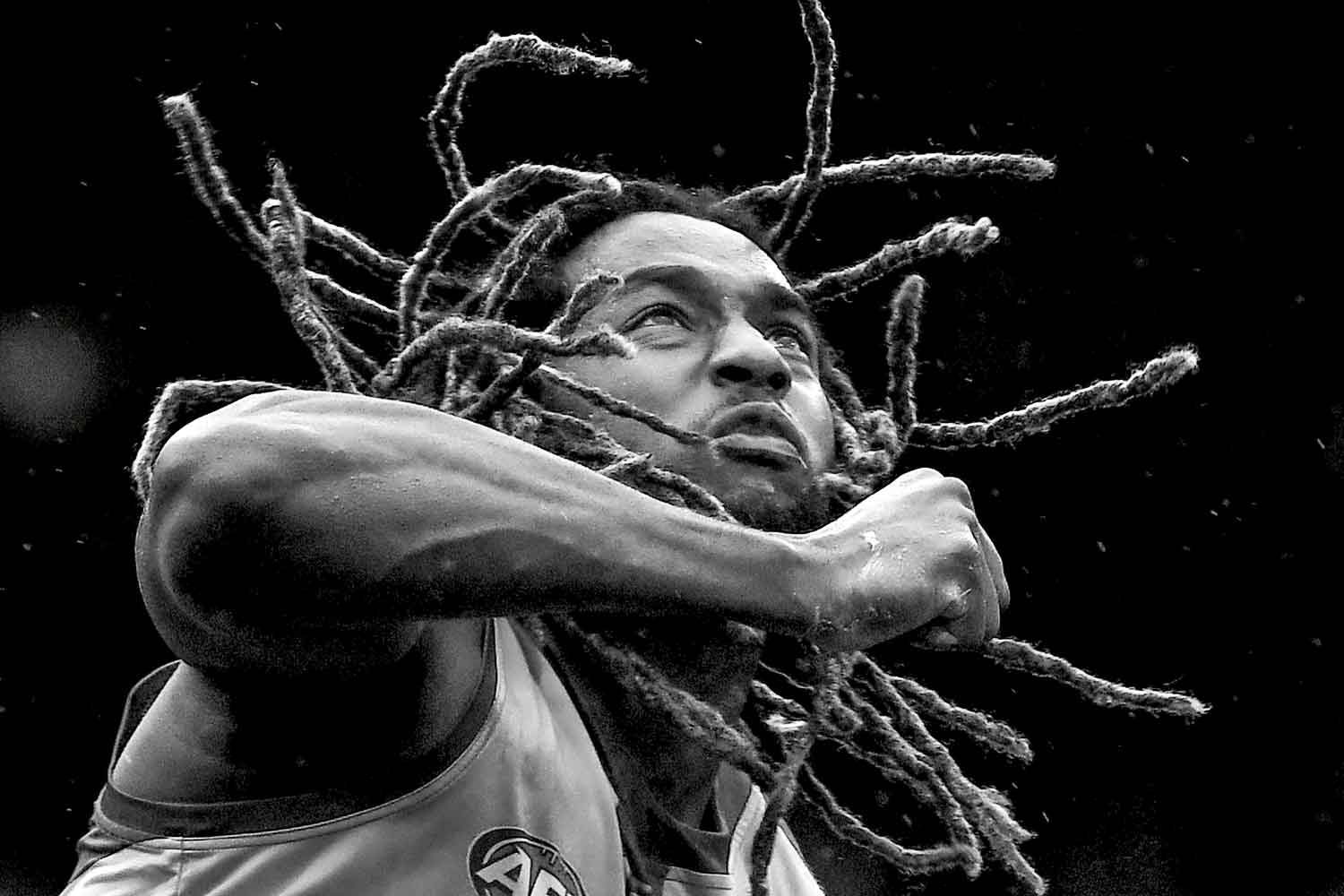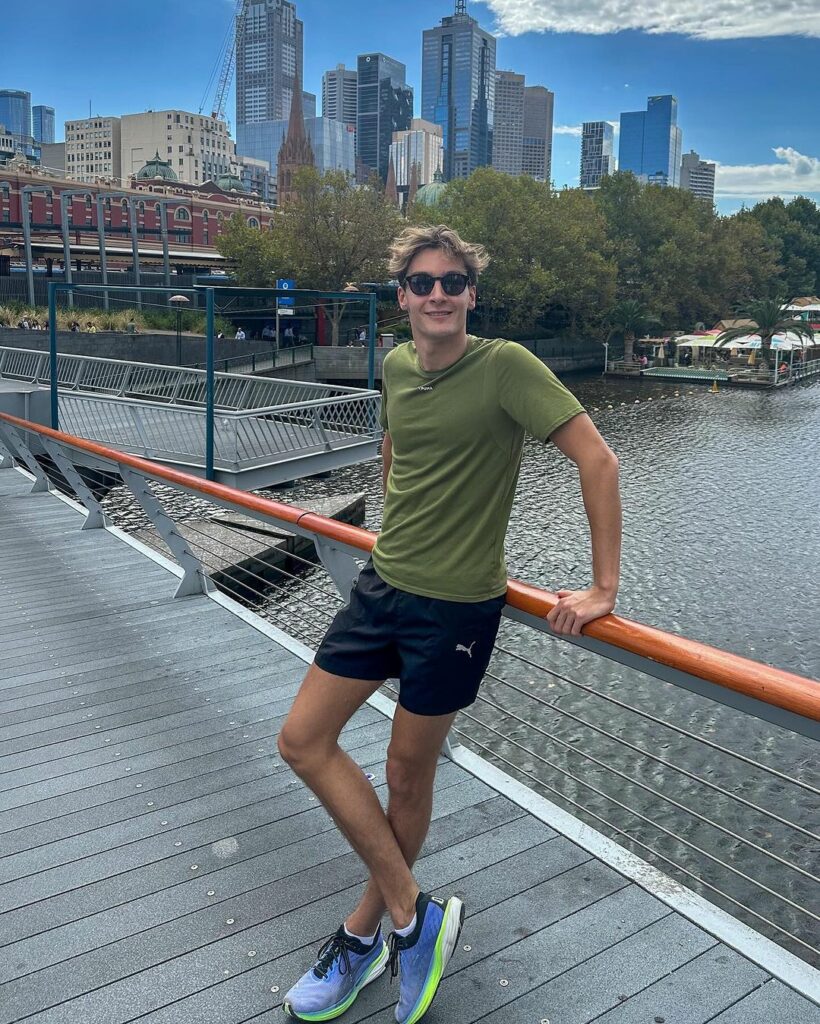
The schoolyard can be a tough place for anyone who’s a little different. Imagine then, what it was like for a tall, skinny Fijian kid growing up in Perth in the mid-nineties. With his rangy body, black skin and wild locks, the young Nic Naitanui could scarcely have been more distinct from his classmates. A tough place? Hell is another way to describe it.
The thing about being different, of course, is that it makes you a target. A uniquely vulnerable one at that. Because for those that don’t fit in, it’s never just the insults and abuse that have the capacity to cause harm. For the victim, names become arrows, jokes land like jabs, even a mere look is freighted with the power to wound.
“It’s a feeling more than anything,” says Naitanui of the effect barbs from schoolyard bullies had on him. “It’s a feeling inside you of worry or hurt. Someone doesn’t even have to say anything. It can just be a look that makes you feel a certain way because you’re different.”
It didn’t help that Naitanui was shy. Sometimes he wore the insults, pretended they didn’t bother him. “You don’t want to complain or whinge and you’re worried that if you do, you’ll stand out even more,” says the Eagles ruckman, who’s just released a children’s book called Little Nic’s Big Day that celebrates cultural diversity. Other times, he took his anger out with his fists. “It’s tough to say but sometimes that’s just your natural reaction,” he says quietly. “It gets to the point where you feel like that’s the only way to deal with it. You look back and you almost wish there was a way you could have stopped it before it got to that point.”
The one thing Naitanui had going for him was that he was good at sport. Over time his prowess on the football field won him the respect and admiration of his peers. “I found acceptance through playing footy,” he says. “It was probably a bit of a saviour for me. It was my way of integrating and being accepted, not just in the schoolyard but the local community as well.”
But acceptance from others was only half the battle. So long shamed for who he was, Naitainui’s real goal was one many young men find even more elusive: self-acceptance. That meant embracing his uniqueness and taking pride in his cultural identity. He remembers latching onto the phrase ‘dare to be different’. “It just helped me realise that it’s okay to be unique and be different and to celebrate that,” he says.
These days Naitanui is easily one of the most popular athletes in WA but that hasn’t saved him from racist abuse, particularly on social media. He estimates he cops racist, vitriolic attacks from online trolls around every two weeks. “The over-the-fence stuff or abuse from other players on the field is pretty rare,” he says. “Social media is the big one because it’s given these people a voice they didn’t have before.” Dealing with online trolls presents a dilemma, he adds. Do you call them out, in the process amplifying their voice? Or ignore them? “At times I will call it out but there are times I don’t,” he says. “Sometimes it’s more powerful not to respond. You don’t want to give them an extra platform. I don’t really like showcasing it too much.”
Nevertheless, he has leapt to the defence of others, calling out a troll who posted a racist slur directed at his teammate Liam Ryan. “It’s tough for young guys like that so you just want to let them know that you’ve got their back,” he says.
While direct abuse is easy to recognise and highlight, casual racism is more widespread and often equally pernicious, Naitanui adds. “We stamp down on any casual kind of stuff at the club because that can be just as hurtful,” he says. “Some might not find it offensive, but others do so I’ve become a lot more confident in myself in confronting that. If it was someone really close to me, I would be the first to tell them. It might break a few friendships but so be it.”
The Eagles star has drawn inspiration from Indigenous players like Nicky Winmar, Michael Long and, of course, Adam Goodes, who’ve shown the courage to speak out against racist abuse. “Those guys are prominent examples of how you can make an impact and influence people through your actions,” he says. “It was sad to see what happened to Adam in the latter part of his career. I think that’s been a big eye-opener for the community.”
eye-opener for the community.” The treatment of Goodes shows how much work there is still to do and Naitanui is all too aware of the challenges involved in trying to shift ingrained attitudes, particularly among older generations. “You try your hardest, but you know when someone’s been doing something a certain way for 70-80 years it’s hard to break that down,” he says. Which is why he believes educating and informing kids is the most effective way to promote tolerance and understanding going forward. “I think it’s important for people like myself to try and influence and teach younger generations to help them become individuals that are accepting of people’s differences.”
In doing so, he hopes the schoolyard, footy field and maybe even social media feeds, become more welcoming, inclusive places.
Little Nic’sBig Day (Allen & Unwin) is on sale now

















